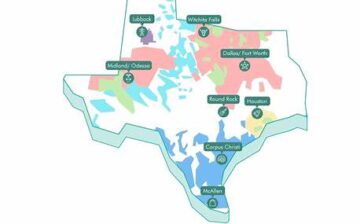One of the best ways to prepare for expenses is to understand what they are; it’s the same with buying, moving into, and living in a new home.
While the budget may vary based on your location, house price, mortgage plan, etc., identifying the factors contributing to the total cost of moving into a new home will help you understand how much expenses to expect.
In this guide, we will break down the various costs of moving houses, from setting up your new home to transporting your items and living there.
Let’s get started.

When is A New Homeowner Ready To “Move in?”
During the initial stages of home inspection and touring the potential house, you’ll probably know if the home needs extensive work, complete kitchen renovation, or a new roof; this means most homeowners complete large projects like these before moving in.
However, only once the actual move-in takes place will you notice less obvious projects pop up, which could impact your move-in expenses. These projects can range from moving your items to installing new electric, water, or gas connections for your new home.
It’s always better to be aware of such expenses instead of having them appear as unpleasant surprises. Planning ahead will also help you create a budget and let you know whether you need small loans from apps like Earnin, Dave, Klover, Beem, Vola, etc.
What Are The Different Expenses To Move in?
Putting down the down payment and choosing your mortgage plan isn’t the end for new homeowner expenses. There’s more to consider – insurance, taxes, maintenance or repairs, and moving services.
So, before you start packing your stuff, here are several costs to consider and prepare for:
Transfer And Setup Of Services
-
Address Change
You’ll have to change your address for government agencies in general. Some must pay fees, while others may take a while to complete. Depending on your state, address updates with the DMV must be done within 10-30 days and may cost you $10-$25 or more. Updating your address for voter registration, SSA, veteran affairs, USCIS, and IRS doesn’t come with charges but must be done as soon as possible.
-
Utility Transfer
To have your home up and running, setting up or transferring utilities is the first step because the process of finding a service provider, contacting them, and the setup can take a good month to complete. Your first utility bill will have the total account of the fees for your new residential utility connection. Some states require a deposit for new water, electric, sewer, and gas connections.
-
USPS Mail Forwarding
Having your mail redirected to a new address is an optional service, but ensuring all your mail reaches you at the correct address is helpful. It’s a simple process – request an address change online and pay the $1.10 fee to receive a verification email that confirms mail forwards. You can also do it by visiting the nearest post office and filling out the PS Form 3575.
Moving Supplies and Services
-
DIY Moving
If you plan to pack and move homes yourself, it is the cheapest option, barring one cost: the transport. Hiring a moving truck can cost anywhere between $20 to $100 per day, and additional mileage and other charges may be included.
-
Moving Supplies
You must spend on essential supplies like cardboard boxes, bubble wrap, duct tape, and a standard tool kit to make packing and transporting your things more manageable and ensure all the items stay protected during transit.
-
Professional Moving Services
If you take the professional movers route, be ready to spend more. Planning ahead will help you manage these costs better. While the average price is around $1,500, it can range from anywhere between $800 and $2,500. If the distance is quite a bit, it may increase the cost. Moving fragile items like antique furniture or a grand piano will cost more. Plus, you’ll have to tip the movers; although it’s unnecessary, it’s warranted if they did a good job.
-
Packaging Services
Many choose to pack their items themselves, but if your move is long, you should ensure everything is packed well. Packing services will ensure your items are travel-safe to avoid damage. They charge an average of $30 to $60 per hour.
-
Moving Insurance
While the exact costs of moving insurance may vary, it’s often negligible compared to the other expenses. It’s advisable to get insurance because it covers any damage or loss to your items in transit and liability insurance and damages to the moving truck.
Other Hidden Costs
- Property Tax: Varying from house to house, this will be an ongoing cost for any property owner and will increase based on the value of your property and local tax rate. Property tax is often included in your monthly mortgage payment.
- House-related Costs: Whether it’s mowing your lawn, cleaning up the driveway, or taking out the trash, you want to keep your house presentable and maintain the curb appeal to be part of the neighborhood. Similarly, you’ll have to spend on items for your home – new furniture, appliances, paint, security system, home tools, etc.
- Emergency Funds: As a new homeowner, you must also prepare yourself for breakdowns. Whether it’s to fix the air conditioning or replace a water heater, such unexpected costs will take you by surprise and burn a hole through your pocket if you don’t have a rainy fund. Financial experts suggest keeping aside $500-$2,500 for emergencies.
Conclusion
Moving into a new home is exhilarating but comes with specific responsibilities, risks, and, most importantly, expenses. It can be a pricey process, from deciding what items to move to buying new things for the new house and hiring movers to get the job done. We hope this article answers all the questions about these costs to prepare you in advance.
We hope you found this blog post on A Guide to Preparing for Immediate Home Costs and Move-In Expenses, useful. Be sure to check out our post on Is it Worth it to Have Movers Pack For You? Hire Packers! for more great tips!
Have Experience in the Moving Industry? Want an Additional Income Stream? Work With All Around Moving!
If you are interested in applying your skills in the moving industry, check out our program to earn extra income. Partner with us and we’ll help you make money. Click here to learn more.





